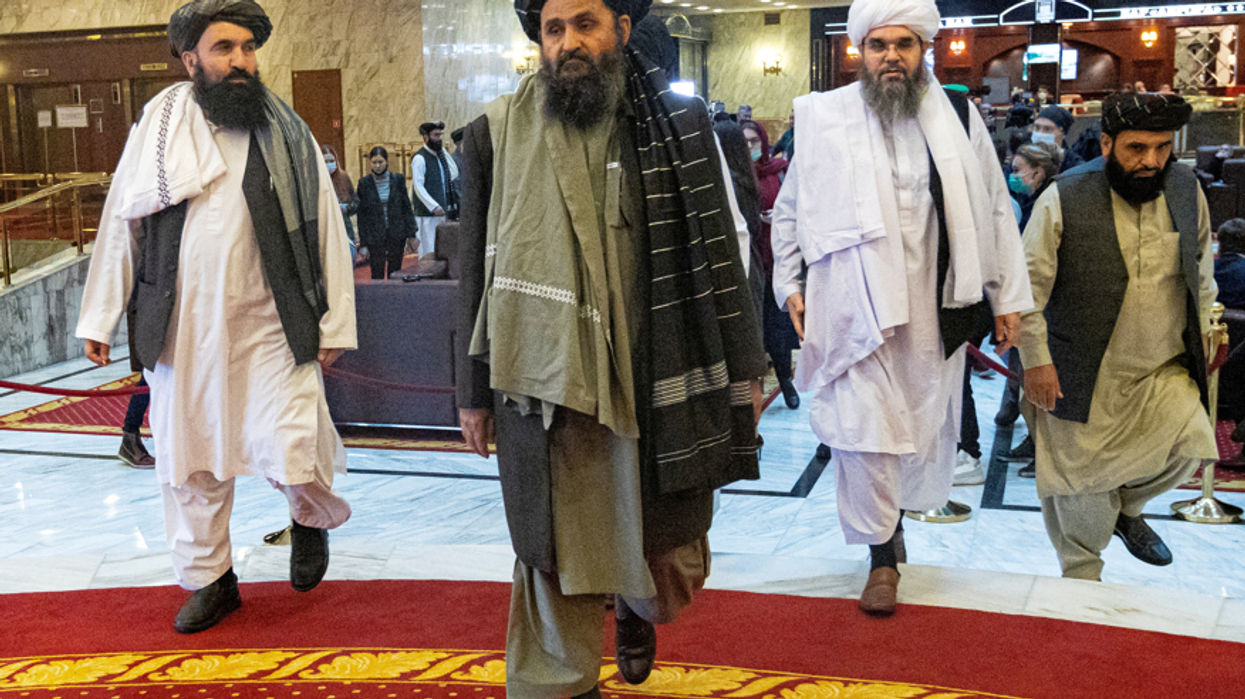MANY wonder what the current catastrophe in Afghanistan will mean for the wider world order, and particularly how the withdrawal will affect the United States’ image on the global stage in terms of its position as an international leader.
What can be said is that the pullout has certainly done nothing to enhance its credibility or standing internationally, and regarding what the future holds, only time will tell – though with the recent ISIS-K attacks in Kabul, the outlook appears grim.
In terms of security ties and cooperation between the US and the UK, it is clear that there were disagreements within the administrations of UK prime minister Johnson and US president Joe Biden.
Both nations viewed Afghanistan somewhat differently – Britain did not necessarily want the withdrawal, especially the way it happened, and many in the intelligence and military communities feel that Biden made the decision without properly consulting allies and advisors.

In fact, Biden wants to shift the US’ foreign policy focus to China and Russia; what’s ironic is it is these two powers that have strong vested interests in Afghanistan. These issues are intimately intertwined and cannot be so easily separated.
The Taliban is seeking global recognition, and China and Russia – as well as Pakistan, and potentially Turkey and Qatar – seem eager to provide it. Even the 2020 negotiations in Doha between the US and the Taliban – which both nations actively supported – served to offer the Taliban a sense of unprecedented international legitimacy.
In particular, the relationship between the Taliban and China has been evolving over time, especially since the Doha talks that were held in February last year, when China was well aware that a Taliban takeover seemed imminent.
Their relationship with the Taliban rests upon three primary elements – prohibiting Uighurs from using Afghanistan as a sanctuary; stopping entities such as the Tehrik-iTaliban Pakistan (TTP) from launching attacks from Afghanistan against Chinese workers in Pakistan as part of the China Pakistan Economic Corridor (CPEC), and ensuring access to the natural resources in Afghanistan to further develop China’s Belt Road Initiative.
One potential obstacle to untroubled relations between China and the Taliban is that the latter has cultural and ethnic links to the TTP. If such cooperation is maintained, there will be more attacks on Chinese workers in Pakistan that may lead to significant delays on the CPEC project and a rising demand for Pakistan to follow through on its assurances.
Otherwise, the Chinese actually view the Taliban as a better security partner than the US due to their shared links with Pakistan which, in essence, is behaving like a guarantor for the Taliban.
The Pakistan factor, which does not receive sufficient attention in the discussion surrounding the Taliban in Afghanistan, is crucial to understanding the dynamics at play here.
Closely connected to the Taliban throughout history, including harbouring the group’s leaders on its soil for the past 20 years, Pakistan has its own incentive to gain influence in the region and beyond, and it sees its involvement in the equation with China as a way to achieve that goal.
Russia considers the current situation in Afghanistan to be an opportunity to
expand its regional influence in Asia, as well as a chance to reconcile the Soviet Union’s failure there in the 1980s.
Vladimir Putin has been carefully cultivating a relationship with the Taliban – which Russia still officially deems a terrorist organisation – since as far back as 2015, when Russia revealed that it was engaging in intelligence sharing with the Taliban to combat ISIS-K.
In 2018, the US, specifically General John Nicholson, even accused Russia of funding and supporting the Taliban directly. He said, “We’ve had weapons brought to this headquarters and given to us by Afghan leaders and [they] said this was given by Russians to the Taliban.” Moscow denied the allegations.
Russia has been strategically crafting its blueprint for stepping in as soon as Nato forces left Afghanistan. In 2019, Russia hosted Taliban members and Afghan politicians in Moscow to call for a withdrawal of foreign troops. Just days after the Taliban captured Kabul, Russia, which notably did not evacuate its embassy in Afghanistan, explicitly expressed its openness to working with the Taliban.
Aside from Afghanistan and the dynamics with regional players, other issues that will determine the US’ prestige globally will be the management of the Covid-19 pandemic and the environment, policy matters that Biden has prioritised.
Undoubtedly, however, what has and will ultimately happen in Afghanistan will be etched in history as a major part of the 46th US president’s legacy.
Victoria Jones is chief editor of Interzine and a senior research fellow at the
Asia-Pacific Foundation.




